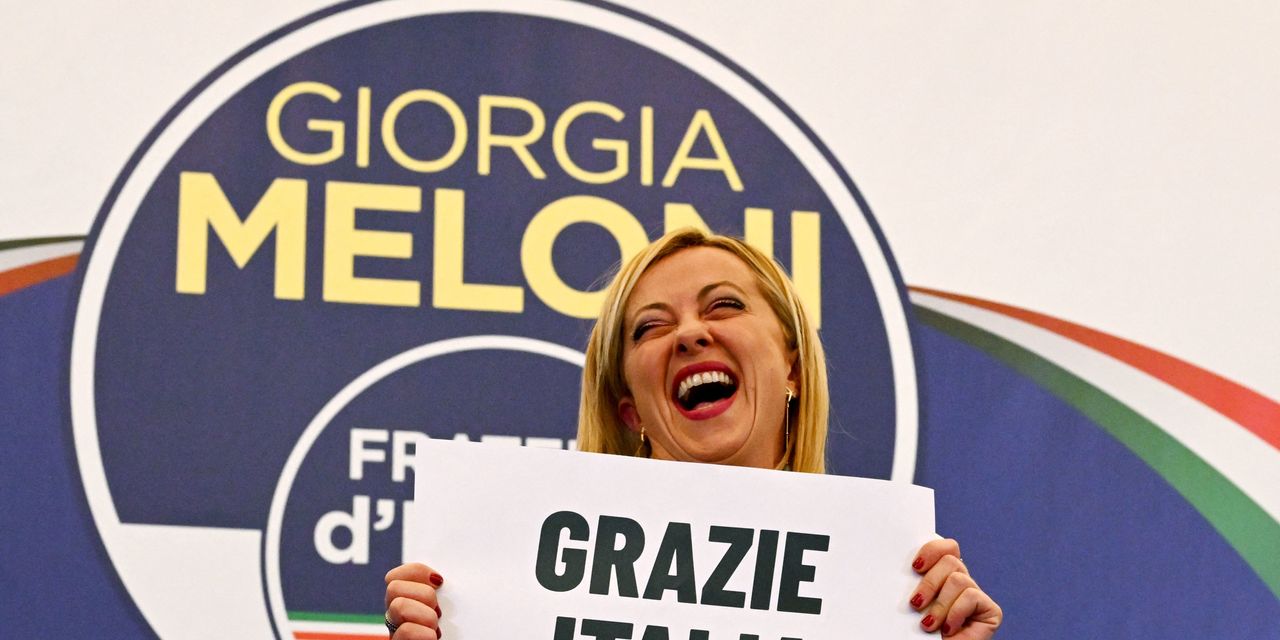U.S. stock-index futures fell late Sunday, suggesting losses Monday, as the projected victory of a far-right party in Italy added to uncertainties about rising interest rates and recession fears.
After falling nearly 200 points earlier in the session, Dow Jones Industrial Average futures
YM00,
were down about 150 points, or 0.5%, around midnight Eastern, while S&P 500 futures
ES00,
and Nasdaq-100 futures
NQ00,
were also about 0.5% lower in choppy trading.
Investors may have been reassured by the moderate tone taken by far-right Italian leader Giorgia Meloni on Sunday night, after partial national election results showed her party as the likely winner.
Stock futures had been relatively flat before news broke that the Brothers of Italy, a far-right party with neo-fascist roots, was projected to win. That could have ripple effects on the euro, Italian banks and Italian government bonds, further roiling markets.
The U.S. Dollar Index
DXY,
rose 0.7% as the greenback continued recent gains against the euro
USDEUR,
and British pound
USDGBP,
which fell to a record low against the dollar.
Wall Street suffered another week of losses Friday in the wake of the Fed’s latest jumbo rate hike.
The Dow Jones Industrial Average
DJIA,
fell 486.27 points, or 1.6%, to close at 29,590.41, while the S&P 500
SPX,
dropped 64.76 points, or 1.7%, to finish at 3,693.23 and the Nasdaq Composite
COMP,
sank 198.88 points, or 1.8%, to end at 10,867.93.
For the week, the Dow dropped 4% while the S&P 500 slid 4.6% and the Nasdaq tumbled 5.1%, according to Dow Jones Market Data.
Investors are worried about the ability of the Fed to pull off a so-called “soft landing” — raising interest rates enough to slow growth but not enough to cause a recession.
“We need a slowdown,” Atlanta Fed President Raphael Bostic said in an interview Sunday. But Bostic said he was optimistic that a soft landing can be achieved, and for “the economy to absorb our actions and slow in a relatively orderly way.”

